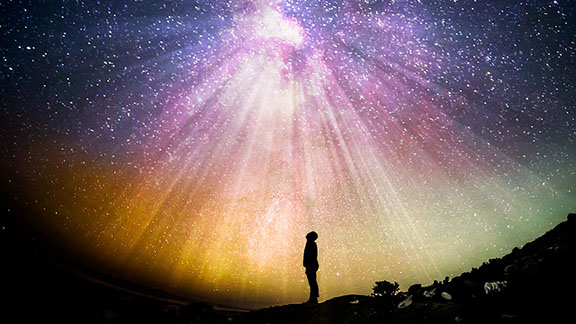 Humanity can be grouped into two categories: People who have questions and doubts and the people who never have questions.
Humanity can be grouped into two categories: People who have questions and doubts and the people who never have questions.
Let me talk about the people who do not have questions. They are people who never think. They are too lazy to think, so they never have to question anything. They say okay to whatever it is, and then goodbye. Or, they are the kind of people who know all the answers already. There is no need for them to ask questions because they know it already.
Then who has the questions? The ones who want to know and do not know all the answers. They are people who are thinking and want to reach the goal, but have not yet found the way. In a way, almost all the scriptures are here by way of answering the questions of the seekers. If you read the 108 Upanishads in the Hindu system, they are all nothing but answers to questions. The seeker asks, and the seer explains. So the fact that people are asking questions means that they are seeking.
Now why does anybody want to become a seeker. They can just enjoy life, whatever comes. They find name, fame, wealth, position and they can just enjoy these things. So, what is it that makes them become seekers? I will make a little pun: when they become a sicker. This means that when they realize they are sick and tired of everything, then they begin to seek. So, first, you become sick, and then you seek.
The world is very helpful in that respect; it makes you sick and tired, and the sooner the better. Then, you begin to seek. The Mother Nature is created for that very purpose. She is there to help you and to goad you toward the truth from the falsified, superficial, and shallow life. Know the nature and its nature first. Then, you will understand that there is nothing deep or permanent in it. Everything is impermanent. Power is impermanent. Position is impermanent. Name and fame are impermanent. Beauty is impermanent. Money is impermanent.
That is the lesson that Mother Nature is trying to tell us. It’s all right to use these things, enjoy material success, but do not depend on it for your permanent happiness. Patanjali in the Yoga Sutras says, “For a person who has the discriminative faculty, who can discriminate which is permanent and which is impermanent, for such a person, everything is painful.” It’s just what the Buddha says in the first Noble Truth. There is pain, suffering, and difficulty in this life. Nothing is really going to make you happy in this world. You get or achieve something and you become excited. You lose it and you become depressed. So, the world keeps on changing. That is what is meant by the impermanent nature of life.
At some point, you will become sick and tired of the whole show—of the continual dualities of loss and gain, pleasure and pain, and so on. Even people with a lot of money or a lot of fame—Hollywood people—want to drop out. Why? When we become sick of the ups and downs we start to ask ourselves, Where is the permanent happiness? How can I be permanently happy? All these things are going to make me miserable. Is there any other way? Then you begin to seek. You begin to look in the right place. It is at that point that you begin to question the value of the worldly things and the value of the real things.
So a questioning mind is a seeking mind, and when you really ask for it, you get the answer. To get the answers, you don’t have to go to a particular individual. You don’t have to go somewhere. If you really seek, everything and anything can begin to teach you. And that is the reason we have this saying, “When the student is ready, the teacher appears.” When you really look for the answer, the teacher appears. In what form? Not necessarily with a long beard or a shaven head or an orange robe- anything can teach you—a stone, a thorn under the rose can teach a good lesson.
I often say that even a broomstick can teach you a fantastic lesson. If you become so very proud of your cleaning job, the broomstick will laugh at you! If it could speak, it would say, “Hey, who do you think did all the work? Without me, the work could not have been done!” So we can learn to be humble and to appreciate the things we use. We can be grateful to things and use them well, never to abuse them or take them for granted. If you are ready to learn, if you are really interested in learning, you can learn from anything and anybody.

